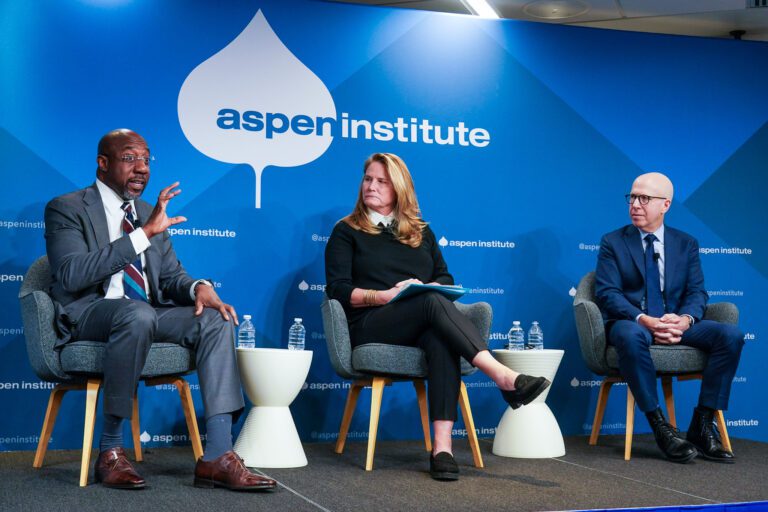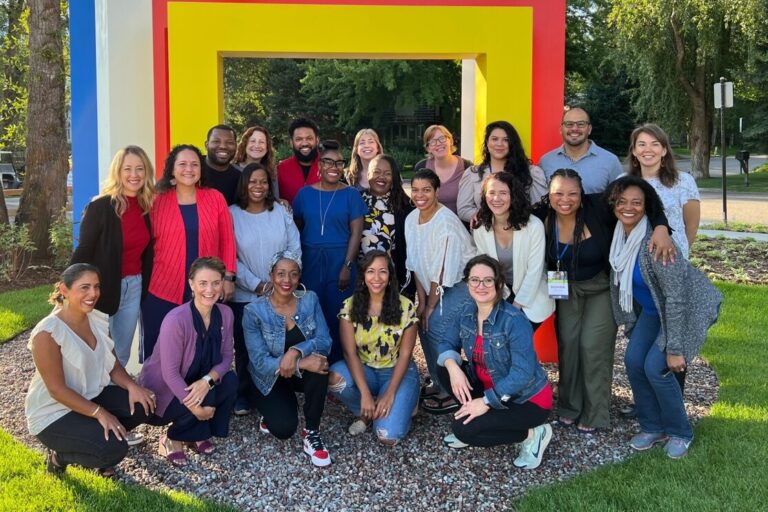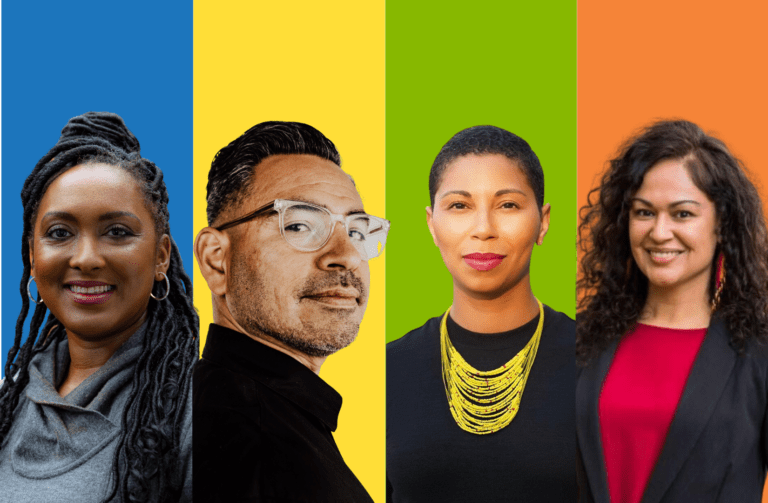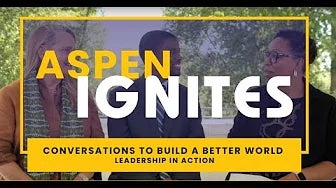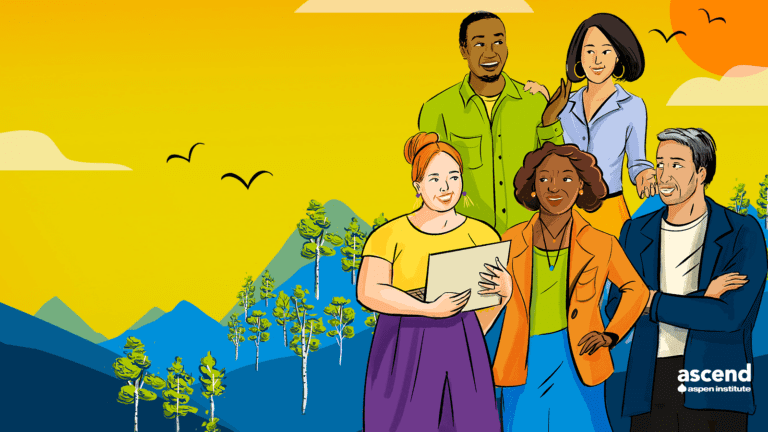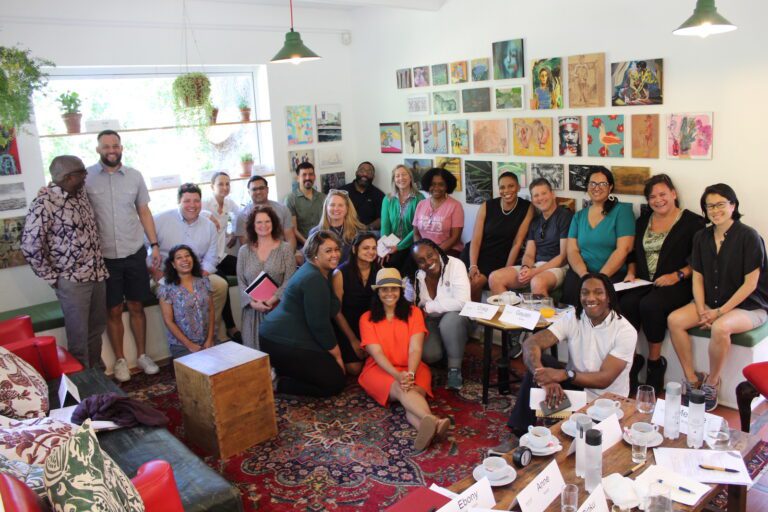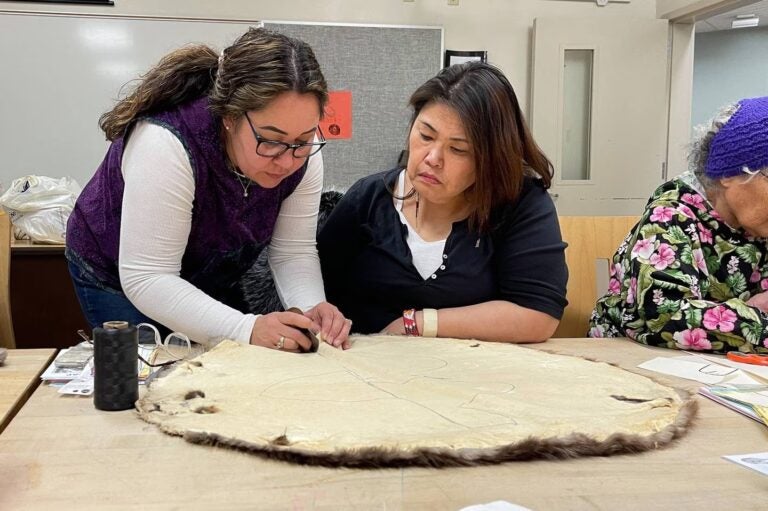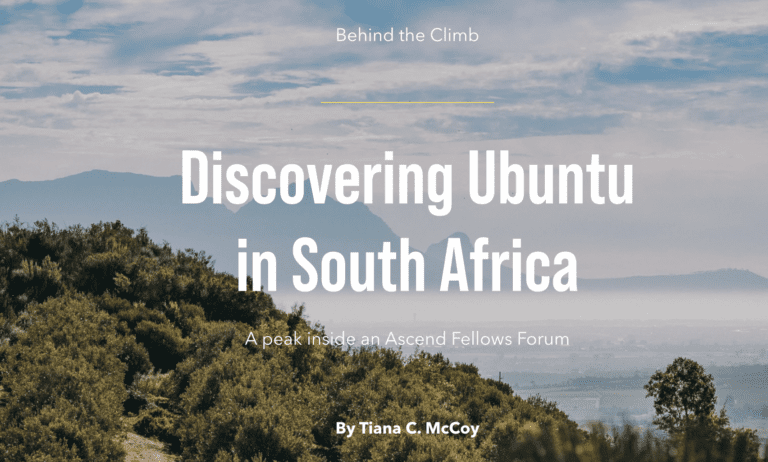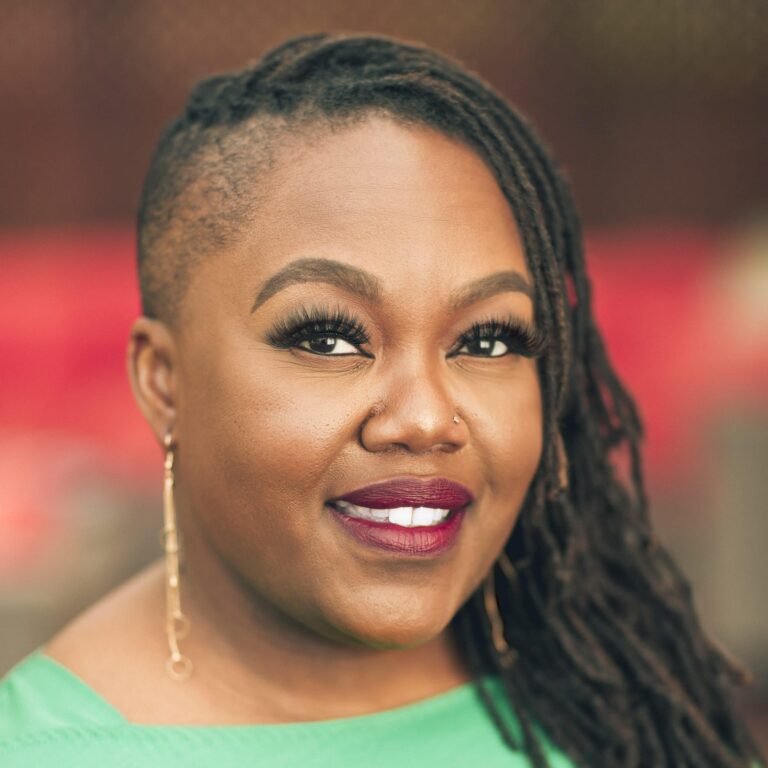2018 Ascend Fellow Action Plans
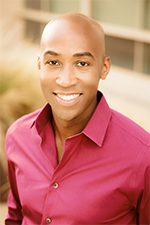

Kwame Anku
Chairman and CEO
Black Star Fund
Sacramento, CA
My Vision – The problem I am focusing on solving is breaking the economic disparity cycle afflicting people of the African diaspora. I call my bold vision 100X100. It is a vision of 100 Black investment managers who will each manage $100M innovation funds by 2025. I believe we can use technology (investment, creation, and deployment) to radically shift the disparities seen in wealth, health, education, and opportunities on a global scale. Imagine if the next Google, Facebook, or Virtual Reality company was founded and led by Black technology entrepreneurs. Imagine mini-Silicon valleys in our urban centers throughout the country and the world – producing life-giving technology and wealth for better schools, food, health and quality of life. The next quantum leap in my work is to create a $100M fund that will fund these enterprises in the US and in Africa.
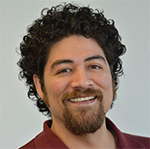

Anthony Barrows
Managing Director
ideas42
New York, NY
My Vision – Having spent the bulk of my career in human services and child welfare, I know the deep need for effective programs, but I also know that many of those programs simply don’t work as well as they could. Applied behavioral science offers some answers to that issue. Using behavioral insights, we can improve outcomes for people by accounting for the quirks of human cognition: everything from implicit bias, to limited attention, to loss aversion, to stereotype threat can have deep impacts on how (or whether) people get the things they need. If we can understand these quirks and design systems that account for them, we can truly help people do more of what they want and less of what they don’t. At ideas42, we push for these changes at the local and state level programs across the country. Our Economic Justice work has achieved improvements in key programs including increased FAFSA and SNAP recertifications, increased uptake of Gifted and Talented testing for elementary school students, higher retention of college freshmen, and redesigned intake procedures for WIC. While each of these successes should be celebrated, there is a lot more work to do – my hope is for these types of improvements to be much more widespread, and for the behavioral insights underlying them to be ubiquitously used in program and policy design. We should all be looking for ways that behavioral science can answers thorny questions: How can we achieve a no-wrong-door policy for benefits? How can we eliminate benefits cliffs for families in need? How can we harmonize eligibility criteria across programs? How can we automate more of the data collection and verification that impose undue burdens on people? How can we mitigate implicit bias in child welfare and criminal justice? Perhaps most basically, how do we build political will to enable these changes?
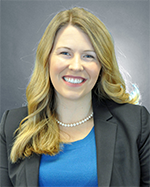

Kristin Bernhard
Senior Vice President, Advocacy & Policy
Ounce of Prevention Fund
Chicago, IL
My Vision – The bold vision for change is moving state advocacy leaders from focusing on access and quality alone in early childhood to an integrated system focused on the whole family that dismantles the structures that have led to generational poverty. I believe that if we are successful in embedding a whole family approach in early learning while simultaneously embedding early learning in a whole family approach, states will finally begin to see the needle move on positive outcomes for all. A secondary component (and new part) of my vision is to position the Ounce, a national non-profit with active work in practice, policy, and research across the country, as a vehicle to shine a spotlight on two-gen leaders and strategies.
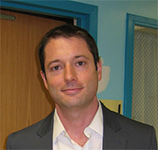

Matthew Biel
Division Chief and Associate Professor
Division of Child and Adolescent Psychiatry and Pediatrics, Georgetown University School of Medicine/MedStar Georgetown University Hospital
Washington, DC
My Vision – Child mental health services are not meeting the needs of the children of this country. While we have made very significant strides in understanding the neuroscience of development, mental health, and mental illness in childhood and adolescence, and in designing interventions that can significantly reduce suffering and improve functioning, we have been failing in several critical areas. First, our models of care are very pathology-focused, with inadequate attention to factors and strategies that enhance emotional, behavioral and relational wellbeing and have the potential to prevent or mitigate the onset of mental health problems in children. Second, our treatments are extremely difficult to scale and tend to be delivered with varying expertise and fidelity, resulting in a status quo in which few of the most vulnerable children receive outstanding care. Third, there is a dire shortfall in the child mental health workforce, further reducing access to expert professionals. As a result, while mental illnesses place a huge toll upon our society, while 75% of mental illnesses have their onset before age 24, and while 20% of US children have significantly impairing mental health symptoms at any given time, population-based efforts to enhance developmental success and to build resilience are rare, and fewer than 20% of children who need mental health treatment receive treatment in a timely and effective manner. Compounding these difficulties is the impact of adversity and trauma upon child development, and particularly upon the likelihood of healthy brain development. As has been cataloged by the ACES study and by a quickly burgeoning literature on early childhood experiences, the pathway toward healthy development is established very early in life, and in the setting of multiple or extreme adverse experiences, children’s risk for developing a range of negative outcomes, including mental illness, physical ill-health, and educational and vocational stagnation increases enormously. For children living in environments constrained by within-home extreme stress or abuse, as well as community-level adversities such as poverty, racism, and violence, these risks are profound, and we have a desperate need to identify ecologically sound strategies to reduce the prevalence of adversity and to buffer children and families from the impact of trauma when it occurs. My colleagues and I have built a network of projects in DC that grew out of years of clinical experience working with children and families in our city. These initiatives share several core values: cross-sector collaboration; deep input from communities and stakeholders; and dedication to bringing expert knowledge and practical skills around children’s development and mental health to new settings. We have generated significant momentum and have impacted educational and health programming in policy in DC over the last few years. Since 2016, I have co-directed the Early Childhood Innovation Network, a local collaborative of health, education, and community providers that designs and implements strategies to promote resilience in families and children from pregnancy through age 5 in Washington, DC. ECIN works across sectors to empower adults in caregiver roles—parents, family members, educators, and health providers—with knowledge, skills, and resources to improve outcomes for children. By developing interventions and inclusive processes that are rooted in science and community voices, ECIN offers unique, holistic approaches to address adverse childhood experiences and promote nurturing conditions in support of healthy physical and emotional development. My hope is that we can develop and extend a new approach to nurturing children and families that is ecologically and scientifically sound, developmentally savvy, and developed hand-in-hand with families and communities. In our early childhood work in DC, the results we seek may sound prosaic but would be transformative and applicable to communities everywhere: women should have healthy pregnancies; parents should receive the support they need to thrive in their new roles; parents and children should build strong attachment bonds in the first years of life; children should enter school with healthy brains ready to learn; schools and communities should create environments that enable children to flourish. We will assess our progress by working with communities we serve to define success metrics and timelines that are meaningful to their families, and by establishing and sustaining assessment strategies that allow for continuous feedback, improvement, and course-correction toward ever-improving outcomes. Our hope is that our early childhood work in DC becomes a catalyst for citywide policies and strategies for early childhood and family wellbeing that incorporate the intersectional nature of this work. We want to demonstrate that when communities and providers unite to address the most pressing barriers to ALL families flourishing, meaningful and durable change and real results can occur.
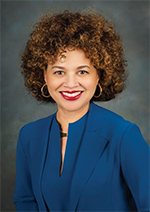

Myla Calhoun
President
Alabama Power Foundation
Birmingham, AL
My vision – I lead a foundation that is mission focused on elevating Alabama. Through the work of the Foundation across the state, I am very aware of the often-intractable nature of problems that arrest development for many who live here. It can be overwhelming, but it seems to me that our best course in addressing our many social, economic and educational gaps is to invest in ideas and programs deeply before investing broadly. This comes with its own challenges because the needs are many and the resources are limited. To better address this, we have recently established a division on strategic initiatives. The work within this group will focus on grant placement versus reactive grantmaking: looking at a discreet issue – likely workforce development related programming- and investing significant resources, financial and otherwise, in them. It is difficult to say if what follows meets the standard of a quantum leap, but it is my belief that this shift to more intentional and strategic giving will yield more meaningful and measurable results.
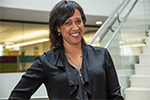

Wendy Ellis
Project Director and Co-Principal Investigator
Building Community Resilience, George Washington University
Washington, DC
My Vision – In collaboration with the National Association of County and City Health Officials (NACCHO), the BCR teams in Dallas, Cincinnati, and Portland have begun to build links to their public health departments. These linkages provide an entrée into city government as well as access to other community organizations and agencies within the cities. Furthermore, the linkages with public health departments provide a potential pathway to sustainable funding. Each BCR site has distinctive characteristics, although commonalities have emerged across sites. The next leap in this work would be to provide a deeper understanding of the linkages between individual and community adversity, inequity and resilience. We will do this by providing a forum for national dialogue, analysis, evaluation, and technical assistance to develop long-term sustainability to fundamental systems change. Leveraging the expertise of staff and faculty at the Sumner M. Redstone Global Center for Prevention and Wellness at the Milken Institute School of Public Health and The George Washington University, I envision a center that provides technical assistance to communities across the country, policy analysis to federal, state and local lawmakers, practice recommendations to federal agencies and leadership training for the next generation of community and child health advocates. In addition to the expertise of BCR center staff, I propose leveraging the leadership of BCR sites to create a larger network of resilient communities that will accelerate and amplify the adoption of best practices and policies that promote trauma-informed programs and innovative financing mechanisms to support cross-sector collaboration.


John Farnam
Community Investment Liaison
Morgridge Family Foundation
Denver, CO
My Vision – The challenge and opportunity that I am interested in solving is that of equity in service delivery design, implementation, and execution. I believe we will achieve equity when we have supportive services that address the whole family and does so with an eye on the long game. We all have very specific needs, desires, and wishes. An equity design thinking approach would amplify the voice of families seeking assistance. Addressing equity through gender, race, ethnicity and sexual orientation lens is of utmost importance to me. With a deep belief that earning a livable wage brings pride and dignity to a family, our work must have an intentionality of upskilling, coaching and mentoring families into a new norm of what it means to live a life of independence. Over the course of the Fellowship, I will have the great fortune of being part of directing $15 million of philanthropic resources. My legacy aspiration is to be the best counsel on how those resources can be leveraged and put to use in the most impactful manner. Paired with the access we have to policymakers, other donors and innovators, I feel my Fellowship will create the conditions perfect to maximize our shared endeavor of creating opportunity and a path out of poverty for the families we are privileged to work with.
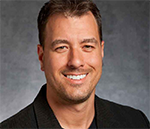

Joseph Hobot
President and CEO
American Indian OIC
Minneapolis, MN
My Vision – The Indigenous people of the United States are in need of creating and sustaining our own variant of the public education system. In so doing, our community will serve to stabilize student participation (attendance), achieve higher completion rates (early childhood reading comprehension and mathematic competencies, secondary graduations), and reinvigorate the ability for our students to better prepare and transition into post-secondary programs or career pathways. We will also serve to restore the life-ways of our ancestors, where our sovereignty was assured, and where academic and economic disparities simply did not exist. The good news is that there are many such alternative programs already in operation throughout Indian country. The challenge is to offer support to them, encourage the growth of additional such programs across America, and to offer a network by which practitioners within these innovative programs can convene and share their wisdom with each other. In short, a national network of these providers is the necessary first step in the construction of an alternative, indigenous variant of the public school system. To effectuate the creation of additional culturally-contextualized, community-governed public schools, as well as a connected network of practitioners, the next phase must begin by further supporting in direct fashion the existing alternative schools in operation. Their work has demonstrated a higher achievement rate academically, higher completion rates, and a higher rate of post-secondary matriculation. By bringing them together within a national network, then working towards delivering adequate resources to their programming, they will be better able to deepen and broaden their positive impact for our students.
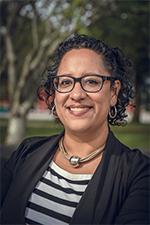

Laura Huerta Migus
Executive Director
Association of Children’s Museums
Arlington, VA
My Vision – Our connected world presents us endless opportunity to access to information and research in every part of our lives. However, this expansive access to information does not always make knowing how to use this information any easier. Parents, especially, are bombarded by a constant stream of new research studies, parenting techniques, data on student achievement, parenting blogs, etc., which compounds the already historically high levels of anxiety involved in parenting in the modern world. There is no one trusted voice parents (and policymakers, educators, healthcare professionals, etc.) to turn to that puts children first and can help them understand and navigate the changing landscape of modern childhood. My vision is to elevate children’s museums as the trusted conveners of community conversations that are focused and accessible to all parents on the changing landscape of modern childhood and helping to shape a new cultural narrative on child-centered approaches that support the development of child-centered policies and systems.
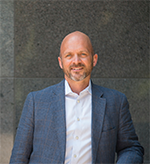

Chris Jones
Executive Director
North Dakota Department of Human Services
Bismarck, ND
My Vision – While behavioral science and economics are softer scientific fields, we have not leveraged the science in the delivery of social services with desired outcomes. And we have not been able to clearly articulate to stakeholders (taxpayers) the overall impact of social programs. I want to be able to articulate economically how investing in kids and family, significantly reduces the overall economic burden to the taxpayer, both directly and indirectly. In order to reduce the overall economic burden of poverty, we must reduce the cycle of poverty or intergenerational poverty. I have been tasked by the legislative and the executive branch to redesign the delivery of social services in North Dakota. The task initially was focused on consolidation, aggregation, and workload standards. We have flipped that on its head and have focused on a redesign focused on the client.
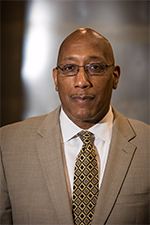

Joseph Jones
Founder and CEO
Center for Urban Families, Inc.
Baltimore, MD
My Vision – The problem I am trying to address is the seemingly intractable generational poverty of urban communities with a goal of not just putting band-aids on poverty but obliterating it with a focus on family and with an intentionality of including men within the family by creating scalable pathways to family stability and economic success for individuals and families. At the Center for Urban Families our unique service model, All In (formerly Family Stability and Economic Success (FSES)), is a comprehensive strategy to accelerate social and economic opportunity and advocate for policies that promote equity and racial justice. We have seen multiple examples of people achieving the kind of success I would like to see everyone achieve. All In is encouraging family-sustaining wages, access to formal and informal education, vocational skills and certification, engaging parents in the development of healthy relationship skills and equipping them with positive parenting skills. A major component of this last aspect is the transfer of literacy skills from parent to child to enhance child development and school readiness and the ability to stay on-grade level once the children enter school. Equally important, or perhaps more important, is to foster the belief that our members can actually achieve this success and so we also provide the coaching to help them envision success, understand that they deserve it, and can get achieve socioeconomic success and mobility. We so strongly believe in our clients’ desire to be active participants in the process, that we intentionally changed the term “clients” to “members.” The quantum leap in my work, therefore, is to build on the existing operational rails that will allow us to refine the process to make that happen, to scale within the model and see the majority of our members achieve greater levels of family stability and economic success and to identify the metrics that inform whether or not that success is happening with an ultimate goal of demonstrating that our All In model is replicable in other urban communities.
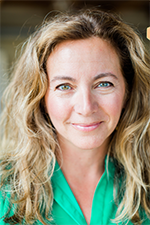

Ariel Kalil
Director and Professor
Center for Human Potential and Public Policy, University of Chicago Harris School of Public Policy
Chicago, IL
My Vision – I am trying to close the gap between aspirational and actual parenting in low-income families. The problem I am trying to solve is that low-income parents, like all parents, many times do not follow through on their good intentions to interact with their children in ways that promote their children’s development. Previous efforts to effect behavior change in this arena have relied mainly on an informational model that assumes that low-income parents do not know about effective ways to stimulate their children’s development or do not understand the return to such efforts. I reject this premise and these assumptions. I instead focus on how to use tools drawn from behavioral science to close the gap between knowing and doing. These tools have shown promise in the areas of financial savings behavior and health behavior but have not previously been applied to efforts to support parent-child engagement. This is a bold vision for change that relies on a new theory, new assumptions, new methods, and new tools. Our bold ideas are primed and ready to be translated into action at scale. The next quantum leap is scaling up these results through a combination of technology, political will, and technical assistance.
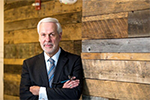

Paul LeBlanc
President
Southern New Hampshire University
Manchester, NH
My Vision – A free college degree for any American who wants it. High quality, aligned with workforce needs, and accredited, this would be a respected and valuable degree – based on our pioneering College for America degree program – with a proven track record. To do it, we will need to think through the eco-system in which it is offered: what community- based partners, what civic institutions with which to partner (Libraries? School systems?), use of machine learning in assessment, workforce/employers partners, infrastructure, and more. I believe that this model can revolutionize higher education for the Fourth Industrial Age, at a time when social mobility in the US is declining, post-secondary credentials are increasingly required for meaningful work, and a degree is out of the reach of far too many people.
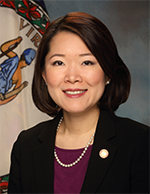

Jennifer Lee
Director
Virginia Department of Medical Assistance Services
Richmond, VA
My Vision – The challenge of poverty sometimes seems too daunting to confront and overcome directly, whereas the opioid epidemic simply cannot be ignored. My proposal is to leverage the opioid crisis in communities that have been disproportionately affected to first unite multidisciplinary stakeholders around a common goal—reducing opioid abuse and overdose— but then to build on the momentum of success by providing community coalitions with a toolbox of two-generation approaches that will help lift families out of poverty.
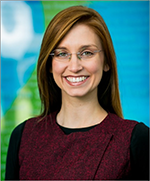

Georgia Mjartan
Executive Director
South Carolina First Steps
Columbia, SC
My Vision – Services and systems that are disconnected and difficult to navigate so often provide tremendous barriers to families and children in their efforts to move out of poverty and toward economic stability. Siloed interventions in the realm of early childhood, employment, or adult education do not have the long-term impact and leveraging effect that taking a two-generation, an integrated approach can have. In my work on the front-lines for over a decade developing, piloting and sharing the model of a two-generation approach to ending family and child homelessness, I saw the measurable impact that a holistic approach can have. I also came to realize that no matter how successful our efforts within a single non- profit, real change had to take place at the systems level. Today, as the leader of South Carolina’s early childhood agency, I have the opportunity to push beyond the traditional silos of state government. Having participated in state government services as a recipient (foster care, WIC, and Medicaid), having worked with thousands of clients who were public beneficiaries, and now being inside state government, I am uniquely positioned to bring insights to this state-level work that could enable South Carolina to become a national model for integrating services and systems using the two-generation approach. My vision is to create a model of integrated, “no wrong door in” systems that provide two- generation access and support that other states will want to replicate. In particular, I am interested in doing this is a conservative, rural, southern state, where the value framework will have to include cost-savings and economic impact. If we are successful, children will arrive at school ready to reach their highest potential, healthy, safe, and actively supported by their families and communities.
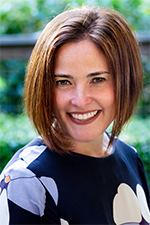

Nitzan Pelman
Entrepreneur in Residence
LinkedIn Social Impact
Berkeley, CA
My Vision – Having completed an Entrepreneur in Residence role at LinkedIn this past year, I now know that people are 8 times more likely to get jobs through referrals. Bootcamps and training programs have focused specifically on skilling up, not recognizing that social capital building is a key part of the equation. Eric Schmidt, the Shusterman Foundation, and Google.org have committed $2 million to help launch Climb Hire. Climb is a new workforce initiative focused exclusively on working with people who systematically face economic barriers, have taken some college credits, and are underemployed nevertheless. We know there are many high demand jobs that require 200-300 hours of job training, like digital marketing or data analytics, as opposed to 1,500+ hours (think data science and engineers). Our goal is to conduct the trainings, led by near peers, in the evenings so participants can keep retail jobs during the day. In addition to teaching soft and hard skills, the main focus is to teach “social capital building” as a central part of the learning model. The big innovation is in our financial model. Climbers will pay $150 a month for 4 years so that they can cover the cost of the tuition for the next student. They only pay if they secure a 45k job. Our second financial innovation is our cooperative model. Climb Hire alumni become part of a staffing agency cooperative where they are financially incentivized, as business owners, to refer their colleagues to employers when they see job opportunities. They benefit when the company is profitable. This is inspired by a non-profit organization called COOP, where their 700 alumni are now earning 40-50k in “knowledge economy” jobs and many of those jobs were secured through referrals. Our goal is to increase the wages of retail workers by at least $10,000 and contribute to fixing a broken higher education space that is not leading meaningful employment for the most disadvantaged in our country.
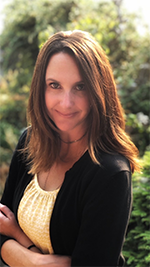

Lori Pfingst
Chief of Programs and Policy
Economic Services Administration, Washington State Department of Social and Health Services
Olympia, WA
My Vision – While it is widely acknowledged that economic stability and success is a prerequisite to child, family, and community well-being, state efforts to reduce poverty and invest in the opportunities that all Washingtonians need to thrive remain fragmented and under-resourced. The good news is progress is underway – Governor Inslee recently formed an Interagency Workgroup on Poverty Reduction, which was followed by the passage of legislation creating an executive-legislative taskforce with a primary focus on intergenerational poverty. These aligned efforts require that a comprehensive strategic plan for poverty reduction be developed by December 1, 2019. For the first time in Washington, there is executive and legislative branch accountability for making the bold changes needed to advance intergenerational opportunity and well-being for children and families in communities across the state. To leverage this opportunity and accelerate momentum, my bold vision for change is to build a coordinated public-private partnership working toward poverty reduction and the advancement of policies and programs that build greater intergenerational opportunity and well-being for all Washingtonians. The quantum leaps I hope to achieve in this work include:
• Recognizing families experiencing poverty as experts in their own lives and elevating their influence and role in the strategic planning and policy-making process; and
• Elevating community-led solutions that are required to address the root causes of poverty in different regions of the state, and building stronger, more formalized relationships between public-private partners.
• Moving a larger group of stakeholders beyond just caring about equity to embedding the knowledge, tools, and leadership needed to achieve it in meeting state and community poverty reduction goals;
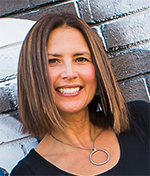

Michelle Sarche
Associate Professor
Centers for American Indian and Alaska Native Health, University of Colorado Anschutz Medical Campus, Colorado School of Public Health, Department of Community and Behavioral Health
Aurora, CO
My Vision – Disparities in health and well-being in American Indian and Alaska Native communities are driven by serious structural barriers, as well as by the intergenerational effects of historically traumatic events on tribal communities and individuals. At the same time, American Indian and Alaska Native communities are rich in spirit and resolved to create environments in which their citizens thrive. My bold vision is to harness the power of community-engaged research to gather and disseminate data to tell a rich story of the challenges and triumphs faced by American Indian and Alaska Native children, families, and communities, and the early care and education systems that support them. My bold vision is that these stories are used by tribal political leaders, early childhood program leaders, and others to advocate for resources that reduce the structural barriers to health and development in the earliest years – including for high-quality health and mental health care, education, healthy food environments, adequate housing, and environments for play and exercise. My bold vision is also that tribal culture and language be leveraged as a source of healing, resilience, and strength for intergenerational trauma and its effects on individuals, families, and communities. The next quantum leap in my work is to use nationally-representative data from the American Indian and Alaska Native Head Start Family and Child Experiences Survey to tell a story that moves resource gate-keepers, including those in the federal government, to direct resources to support early childhood development through high-quality education, health promotion, prevention, and intervention services.
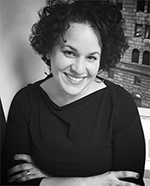

Lorelei Vargas
Executive Director
Trinity Commons
New York, NY
My Vision – Building on the success of two-generation initiatives focused on early care and education, the launch of CFWB will position ACS as being the first child welfare agency in the nation that has invested in primary preventive services for children and families. Charged with leading this effort, I envision developing a trauma-free New York City. A city where regardless of what zip code you’re born in, your religion, color of your skin or socioeconomic status, children and families will have the opportunity to thrive. I envision building protective factors among children, families, and communities, with the goal of minimizing high ACE scores and mitigating toxic stressors for parents, leading ultimately to child and family well-being. Operationally, the execution of this work begins with identifying, leveraging and connecting existing funding and investments to align with the protective factors and ensuring their coordinated presence in high-risk communities. Through this work, I plan to both influence policy, systems and practice, and build political will primarily in the following areas: two-generation approach; brain science; and, trauma-informed care. New York City is a national leader and this bold initiative will enable us to leverage the resources available to New York City to embed a two-generation approach as a primary preventive strategy in one of the country’s largest child welfare systems. By embedding new practices, we will create a foundation to push toward influencing policy and developing systems that support two-generation approaches grounded in brain science and trauma-informed care.
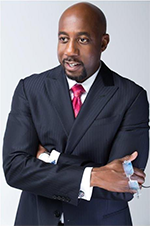

Raphael Warnock
Senior Pastor
Ebenezer Baptist Church
Atlanta, GA
My Vision – I want to develop a set of strategies and networks that will catalyze a national, multi-faith movement to end mass incarceration in the United States of America. I aim to build on the work that my church is already doing in this area, as we have coordinated various entities of our local county government in massive one-day criminal arrest record expungement events in our church, changing the lives of hundreds of citizens who were previously barred from housing and employment opportunities. Those in the interfaith community are uniquely positioned to draw upon their ancient traditions, moral vocabulary and the institutional strength of collective witness to address this human rights catastrophe in a way commensurate to the depth of the problem. So far this has not happened – ironically, not even in the black church. The American churches – as part of the larger faith community – have yet to put forth a clear and compelling voice on the subject of mass incarceration or to organize an effective moral witness against its continuing evolution. There is a vast difference between offering pastoral care and spiritual guidance to the incarcerated and formerly incarcerated and challenging the public narrative, the public policies, laws and policing practices that lead to the disproportionate incarceration of people of color in the first place. This is the work I aim to help catalyze and lead.
Related Posts
